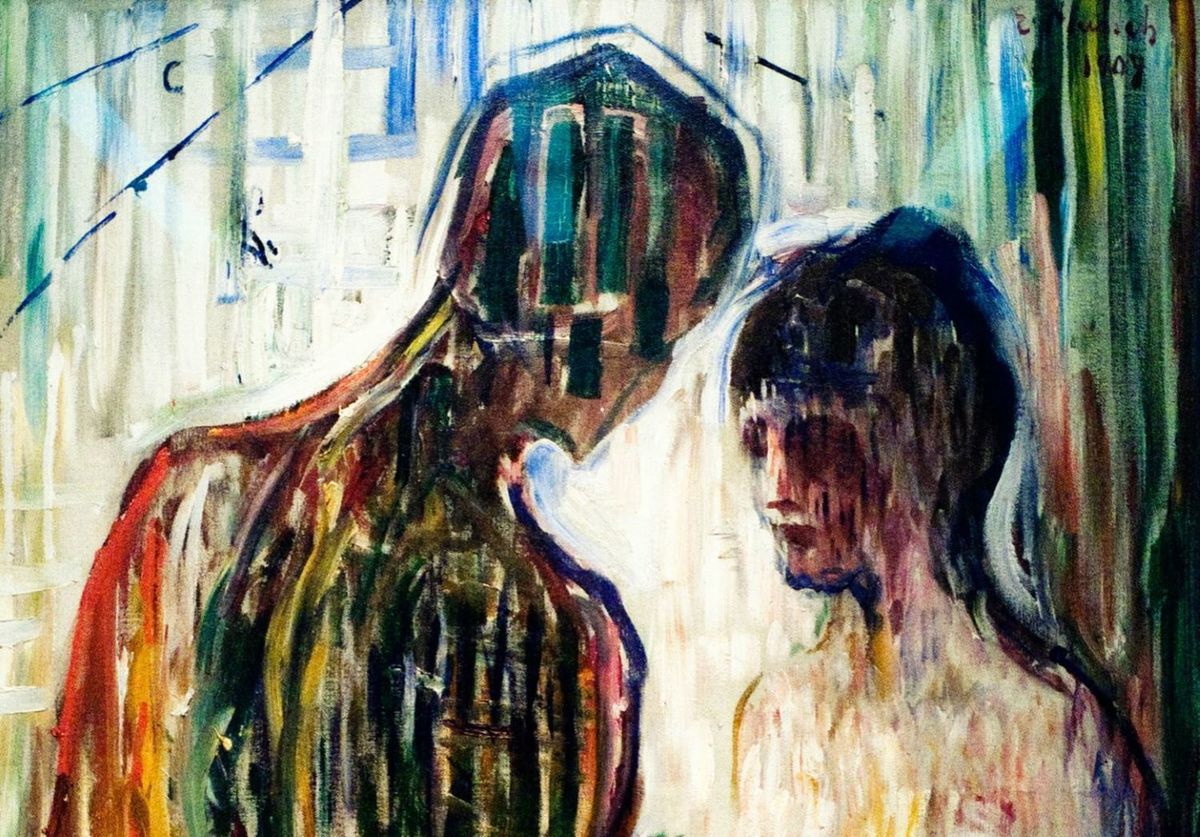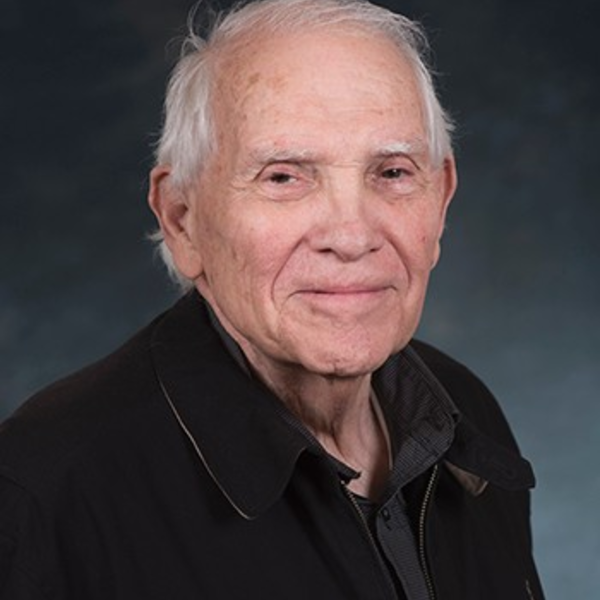Both [Plato and Aristotle] have given us an account of philosophy, not without giving us also an account of the way to it, and of ways to re-establish it when it became confused or extinct.
—Alfarabi, The Philosophy of Plato and Aristotle
Pope John Paul II’s Encyclical Fides et ratio says all the right things about the human quest for meaning and truth, about the indispensability of philosophy both for integral humanity and for wholesome theology, and about the importance of philosophy in the training of priests. In addressing the letter to the bishops, John Paul writes to perhaps the last body of people in the world who possess the sounding-board that results from having been trained in that combination of scholastic philosophical and theological substance with existentialist, personalist, and pastoral accidents that held sway in seminaries until after Vatican II. From a stance of basic agreement, I fear that the letter manages to say the right things in a way that is too removed from our concrete situation of teaching and learning today. The situation in which the contents of this letter might have been widely persuasive has all but passed away, even in universities still called Catholic or Jesuit—and surely even in the better seminaries today.
The letter takes for granted not only that the tension between Athens and Jerusalem lies at the heart of Western culture but that a synthesis between them was achieved in the Middle Ages, and revived in the era between Aeterni Patris and Vatican Council II. Even the most superficial survey of our university today will leave no doubt that this fragile synthesis has shattered. In spite of mission statements, in fact the university has accommodated itself to the “Enlightenment’s universal project to improve health, longevity, and income while expanding ‘trade which unites all peoples’.”[1] This project “takes precedence over religion”[2] or faith, which is considered “sectarian” and by definition an agency that divides people, so that the tension between Athens and Jerusalem has been suspended or at least relaxed in our common academic life.
In the pre-philosophical, pre-Hebrew, and pre-Christian ages it was commonly believed that “the world is full of gods.” Society’s “sacred canopy” was all-embracing. No less than philosophy’s noetic exegesis of myths, the Hebrew Bible’s teaching that humankind is created in the image of a transcendent God emptied the created world of the gods. The Christian teaching that God became man so that human beings might become divine meant that people are called to be much more than “human, all too human;” the God whose face shone in Jesus exercised power in the form of weakness and self-sacrificial love. But in practice, these Christian and Jewish teachings have been rather eclipsed ever since Christianity lost the intellectuals in the eighteenth century and the workers in the nineteenth. This is not to deny the existence of a minority who believe in these teachings; but in the university today, they do not give the university its dominant intellectual or even social and moral tone.
The situation of philosophy as a genuinely formative and integrative force is becoming even more marginal to the academic ethos than liberal education itself. Again, I do not mean that no professors or students are liberally educated here. But how many truly know enough about what that means to say that they are or are not?
Never, perhaps, has the question, Why philosophy? been more real; never, perhaps, has it been asked so little. Despite lip service, most practitioners of theology and religious studies today no longer see any intrinsic need for philosophy in the sense that they devote to it the years of study it demands—this may be the salient provocation for the pope’s letter. Still less do the natural and exact sciences miss the putative wisdom that philosophy—theoretical or practical—was supposed to supply. Even in the face of a mounting global environmental crisis they still for the most part pursue nothing but their own specialized inquiries. Scientists and scholars in all fields rarely seek the grounds for the legitimacy and meaning of their own disciplines—they take them for granted, dogmatically. As far as I know, they do not regularly pose the issue of genuine collaboration, and this is exacerbated by our university’s departmental hegemony. The humanities also are fragmented. If they at times tout “theory,” the theory many scholars tout is usually a derivative of the hermeneutics of suspicion that regards meaning, truth, and philosophy in the sense assumed by the encyclical as derisory.
If Fides et ratio makes a case for the need for philosophy convincingly, it does so for a world that no longer exists within the confines of a university such as Boston College or the University of Notre Dame. Indeed, I do not think the letter reminds the reader sufficiently how philosophy is not just a department of knowledge like other more familiar fields of organized knowledge, where the beginner starts with the rudiments of a discipline and advances gradually into the more sophisticated and recondite realms of highly specialized investigation. Getting started in philosophy is a much more challenging and even dangerous matter.
One cannot really begin unless one undergoes a Socratic reversal.[3] In practical terms this requires the (sometimes shattering) experience that one’s concrete solution to the problem of living up till then might be wrong, might be worthless. One would have to ask whether the vast accomplishments of our scientific-technological culture do not end up inculcating lowered, not higher standards for the lives of humans, citizens, and persons of faith. In short, to really begin philosophy one has to be existentially concerned about the right or just way to live our lives individually and communally.
The letter’s survey of the career of philosophy does not acknowledge clearly enough that the Socratic reversal was often neglected or even forgotten in premodern times when metaphysics or ontology (labels invented much later on!) was thought of as “first philosophy” in a sense detached from any need for intellectual ascent and even conversion. Nor was philosophy always better off as the handmaid of theology in the Middle Ages. The image of philosophy as a kept woman is almost unsavory! Matters did not appreciably improve in this respect in modernity’s vaunted new beginning or “new instauration” (Francis Bacon). Then metaphysics was displaced as “first” by epistemology in the not altogether wrongheaded belief that you cannot adequately ask and answer the question about being unless you first respond correctly to the question about knowing. More importantly, it was tethered to “the relief of man’s estate,” and hence rendered technical by being committed to the artificial production of power.
As a reaction to this on the part of the worldwide Catholic subculture, departments of philosophy asking about being qua being—cosmology, natural theology, and rational psychology as a prologue to ethics—also took for granted the answer to the question concerning the very need for philosophy in the first place. It is also obvious that tracing the answers to the question about knowing from Descartes and Locke through Hume and Kant over Hegel to Nietzsche does not guarantee that whoever does so will give a damn about the right way to live, either.
Who then is prepared to attempt entry into philosophy today? The classics would have answered, only those who possess phronesis: people who deliberate well because their emotions are habitually subordinated to their intelligence and reasonableness. Such people are capable of attending to—reading slowly and carefully—the writings of the great authors. This may be asking a lot—perhaps too much?—of today’s undergraduate or graduate student, but I am not sure.
Even so, Fides et ratio does not adequately address the issue of philosophy’s requisite de-sedimentation and liberation from the cave of modern and late modern civilization. Authoritative documents like encyclical letters tend to have a moralizing tone adopted from a position of assumed superiority, and this is not radical enough. The encyclical says with some truth that everyone must discover for themselves the meaning of their existence, and so must be their own philosopher. But philosophy as something you just about cannot get out of is not quite the same thing as philosophy in the sense of a genuine love of wisdom. Indeed, you may not be surprised to hear that the love of wisdom for its own sake is not something the average or “normal” quest for meaning hits upon as the most choice-worthy way of life in the U.S. today.
I do not mean to suggest that this state of affairs is either novel or restricted to our country, either. What is novel is that we have imbibed with our mother’s milk modern and late-modern civilization and its expectations about what life is cracked up to be. Our models, parental or otherwise, enculturate us into the ethos of self-assertion and self-promotion in order to survive and be what our culture understands to be successful. But this seals us off from serious and more than nominal access to either Jerusalem or Athens, which never confused greatness with success. We have by and large been imbued with modernity’s method of dogmatic skepticism, and have bought into polemics against any traditions that call into question our ceaseless quest for self-preservation, security, and comfort.
For anyone who experiences this way of life as a kind of deprival, our culture offers basically two alternatives: the Marxizing Rousseauism unwittingly exemplified by sentimental “do-gooderism;” or the meld of Kant and Nietzsche exemplified by Max Weber and all who take for granted the dichotomy between the private ethics of conviction (or conscience) and the public ethics of consequences, between facts and values, and who therefore interpret freedom as arbitrary commitment to some values or other: It does not matter what your values are, just so you are sincere!
Karl Marx’s prophetic commitment to economic equality was temporarily revived in the 1960s and early 1970s; it has now been displaced by that mordant critic of both liberal capitalism and socialism, Friedrich Nietzsche (even if in the guise of thinkers like Heidegger, Derrida, and Foucault). In varying ways, these thinkers put traditional philosophy, science, and morality in the context of historicity and perspectivism, despising all others—John Paul II included—as lacking nerve.
In my 27 year experience of teaching college philosophy and theology, those most likely to care about such questions are the students and teachers who have had the good fortune to be able to look up to someone or something with the deepest regard—with the regard one has for a friend. These are “resurrection moments.” People living out of regard for others and with high moral seriousness are motivated by a desire for appropriate response; and so they realize at least vaguely that the more they understand that for which they have such regard, the more appropriate their response can be. They are the ones who often let themselves be overtaken by radical wonder. They are the ones who display that attitude of openness or responsiveness by which people recognize a gratuity to which they cannot lay claim.
Tragically, in the ruins of Christian culture, many who manifest such inchoate faith today find themselves so uninspired, sometimes “turned off,” by organized religion that it becomes a matter of intellectual integrity for them not to relate the object of their regard with our Lord Jesus Christ, or even in some way with God. I do not think Fides et ratio shows enough awareness that for many the language of the Hebrew and Christian Bible does not open a window on the “mystery of love and awe.”
Although the pope has addressed this issue movingly in Tertio millennio, this letter does not air any suspicion that many well-intentioned people see churches as communities of worship and witness more as institutions of conformity and enslavement rather than as harbingers of the self-transcendent life. And yet I am convinced that the experience of inchoate faith—if not expressly of being in love with God—is at least one condition for philosophizing today. This is in basic accord with the encyclical’s deepest teaching on intelligence infused by love.
Perhaps the only approach to liberating the minds of such students from the tyranny of managed public opinion would be a dialectical one: first, because it is conversational; and second, because the dialectical experiment of history offers a genuine propaedeutic to philosophy today. In this dialectic, students let themselves in for understanding the positions of the great philosophers and theologians in history on their own terms, giving them every benefit of the doubt. Such careful reading soon brings to light radical disagreements among the great thinkers about the most basic issues.
Great authors are great because they tell us why they hold what they do. Read together, they give rise to quaestiones in the classic sense of the term. The genuinely dialectical spirit is driven by real questions; and real questions put the subjects at issue in the center of the discussion, not ourselves. Only in the last resort are ultimate arguments ad hominem, because the intellectual positions we hold on the big issues finally do correlate with our concrete solutions to the problem of human living. But while the quest for such a solution is underway, the beginning of a critical love of truth is attentiveness to others.
[1]Timothy Fuller, Reflections on Leo Strauss and American Education,” Hannah Arendt and Leo Strauss: German Emigrés and American Political Thought, eds. P.G. Kielmannsegg, H. Mewes, E. Glaser-Schmidt (New York: Cambridge University Press, 1995),61-80 at 79; The internal citation is from Leo Strauss, “Liberal Education and Responsibility,” Liberalism: Acnient and Modern (New York: Basic Books, 1961), 20. George Grant put it famously: “If you pursue a prosperous society at the expense of everything else, you’ll get a prosperous society at the expense of everything else.”
[2]Ibid.
[3]This term is also Fuller’s :and probably a translation of Plato’s periagoge, and perhaps more helpful than the more loaded term, ‘conversion.’


